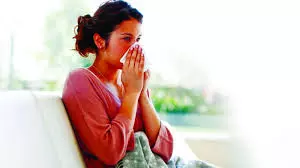
Hyderabad: With seasonal diseases surging in the city following recent spells of heavy rain, doctors are urging citizens to remain on high alert and take strict preventive measures, particularly against dengue, flu and viral infections. The key message from the medical community is clear: the only way to prevent dengue is to prevent mosquito bites. Medical professionals warn that rising water stagnation and increased contamination of food and water are driving a spike in illnesses, with the number of viral and vector-borne disease cases expected to climb in the coming weeks.
She added that while diseases like dengue and chikungunya have similar symptoms, chikungunya is distinguished by intense joint pain and swelling that interferes with daily activities. “Interestingly, dengue patients are showing more prominent headaches than high-grade fevers in the current wave,” she said.
Senior consultant physician Dr Shiv Raju also warned of an uptick in dengue-related hospital admissions, including cases among professionals and VIPs. “We are seeing patients with high-grade fever, intolerable headaches, giddiness and fatigue. Some also show low blood pressure and declining platelet counts,” he said. “Though most cases are currently manageable, we expect a higher caseload in the coming weeks.” He also noted the detection of a few malaria cases.
“Dengue alert must apply to everyone. Office-goers are equally vulnerable,” he said. “Waterlogging must be eliminated at all costs. People should wear full-length clothing, use mosquito repellents and avoid unnecessary outdoor exposure. Sick children should rest at home, and anyone with flu-like symptoms should practise social distancing.” In response, the director of public health and family welfare has issued a public health advisory, urging citizens to adopt preventive practices.
Dr Shraddha Sanghani, consultant, internal medicine, pointed out that many flu-like cases are presenting with mild cold and cough, but Covid-19 cannot be ruled out entirely. “Testing is mostly limited to elderly patients with high-grade fever. Many with upper respiratory symptoms are being treated based on clinical suspicion,” she said.
Doctors collectively recommend maintaining high personal hygiene standards, including regular handwashing, consuming only clean and preferably boiled drinking water, and avoiding raw or uncooked food. Additional precautions include the use of mosquito repellents, wearing full-sleeved clothing, avoiding water stagnation, and using masks in public spaces, especially for vulnerable groups like children and the elderly.
They further advise adequate hydration through oral rehydration salts (ORS), coconut water, and a protein-rich diet. Importantly, they urge individuals to seek immediate medical care if the fever lasts beyond a day.
